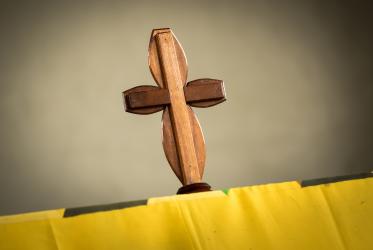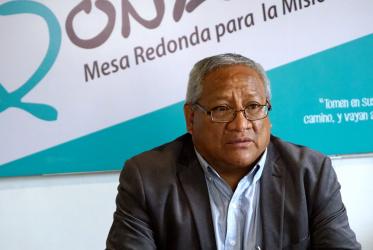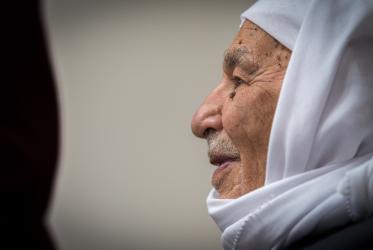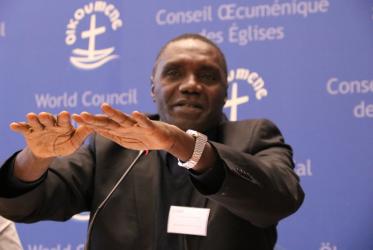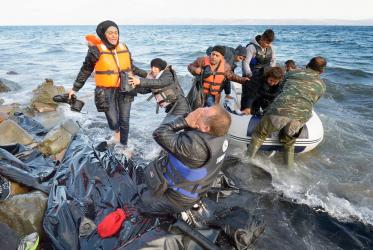Displaying 61 - 80 of 148
Dr Saïd Ailabouni: God is on the side of rejected, oppressed, occupied
12 September 2019
“Economy of life” lifted up at special school in Indonesia
22 August 2019
Church in Bali empowers youth to break cycle of poverty
18 March 2019
Agreement works toward food security in South Sudan
23 February 2019
WCC expresses growing concern on Venezuelan people’s future
14 February 2019
Fr Alexi - a peacemaker in Syria
21 December 2018
How can you help refugees?
11 October 2018
WCC regrets USA withdrawal from UN relief for Palestinian refugees
03 September 2018
WCC calls for prayer for flood-stricken Kerala, India
18 August 2018
